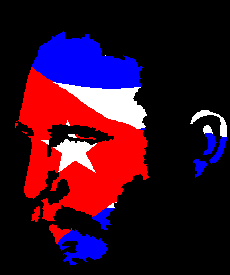 Originally posted at American Thinker. blog
Originally posted at American Thinker. blog
Somebody alert Michael Moore. Please — deliver an urgent communiqué to Barack Obama: former Cuban president Fidel Castro admitted the “communist economic model doesn’t work.” In a rare moment of honesty, Fidel came clean with American journalist Jeffrey Goldberg of The Atlantic magazine.
Goldberg asked the Cuban revolutionist if “Cuba’s economic system was worth exporting to other countries?” Over a casual lunch, Fidel nonchalantly replied in the following way: “The Cuban model doesn’t even work for us anymore.”
What a revelation! Tell that to the 11 million people subsisting on a government-rationed diet of rice and beans or standing on line in hopes of gaining access to a filthy, fly-infested “free” health clinic.
In Cuba, the “state controls well over 90 percent of the economy, paying workers salaries of about $20 a month in return for free health care and education, and nearly free transportation and housing. At least a portion of every citizen’s food needs are sold to them through ration books at heavily subsidized prices.”
Castro’s candid comments will likely surprise Cuba apologists here in the U.S. like actor Jack Nicholson who, in 1998, proclaimed Cuba “a paradise” and Fidel Castro “a genius.” Nicholson’s glowing assessment aside, Graham Boynton, in a 2006 travel article entitled “Cuba: Escaping Castro’s Shadow,” made the brilliant observation that there “is nothing glamorous about Cuba’s grinding poverty.”
Cuba’s current president, Castro’s brother Raul, also admits the country has an economic system that is less than stellar. In response, Raul has “instituted a series of limited economic reforms, and … warned Cubans that they need to start working harder and expecting less from the government. But the president has also made it clear he has no desire to depart from Cuba’s socialist system or embrace capitalism,” a political decision that bodes poorly for dirt-poor Cubans at the mercy of the state.
“Due to a serious illness that nearly killed him,” Fidel Castro “stepped down temporarily in July 2006…He resigned permanently two years later, but remains head of the Communist Party.”
Thus far, Castro’s return to the world stage has not brought with it the ex-president’s opinion on Cuba’s “stench of sewage …the decrepitude of the buildings and piles of rubble … [or] the corpse of a dog long dead” lying in the street waiting to be stumbled over, all vivid reminders that Castro’s Cuba is a crumbling, impoverished third-world country.
Moreover, since his miraculous recovery, octogenarian Fidel hasn’t yet discussed waning Cuban cigar exports, the Cuban band Buena Vista Social Club or spoken about the symbol of his regime’s failed plan embodied in “National School of Arts… a place that sums up the contradictions – the high aspirations, low achievements and broken dreams – of Castro’s Communist utopia.”
Instead, the ex-president focuses mostly on international affairs. “Even after the fall of the Soviet Union, Cuba clung to its communist system.” Yet, after recommending the Russians turn the East Coast of the United States into a mushroom cloud, fifty years later Fidel’s deathbed epiphany has caused him to question “his own actions during the Cuban Missile Crisis, including his recommendation to Soviet leaders that they use nuclear weapons against the United States.”
Recently, a feeble Fidel has stepped forward as an international spokesperson. In the waning years of his life, Fidel Alejandro Castro Ruz has emerged as a harbinger of doom, warning the world about the threat Iran poses as a catalyst for nuclear war.
Let’s hope Fidel’s new found career as an apocalyptic prophet falls as abysmally flat as the prowess he demonstrated as communist Cuba’s dictatorial leader.
